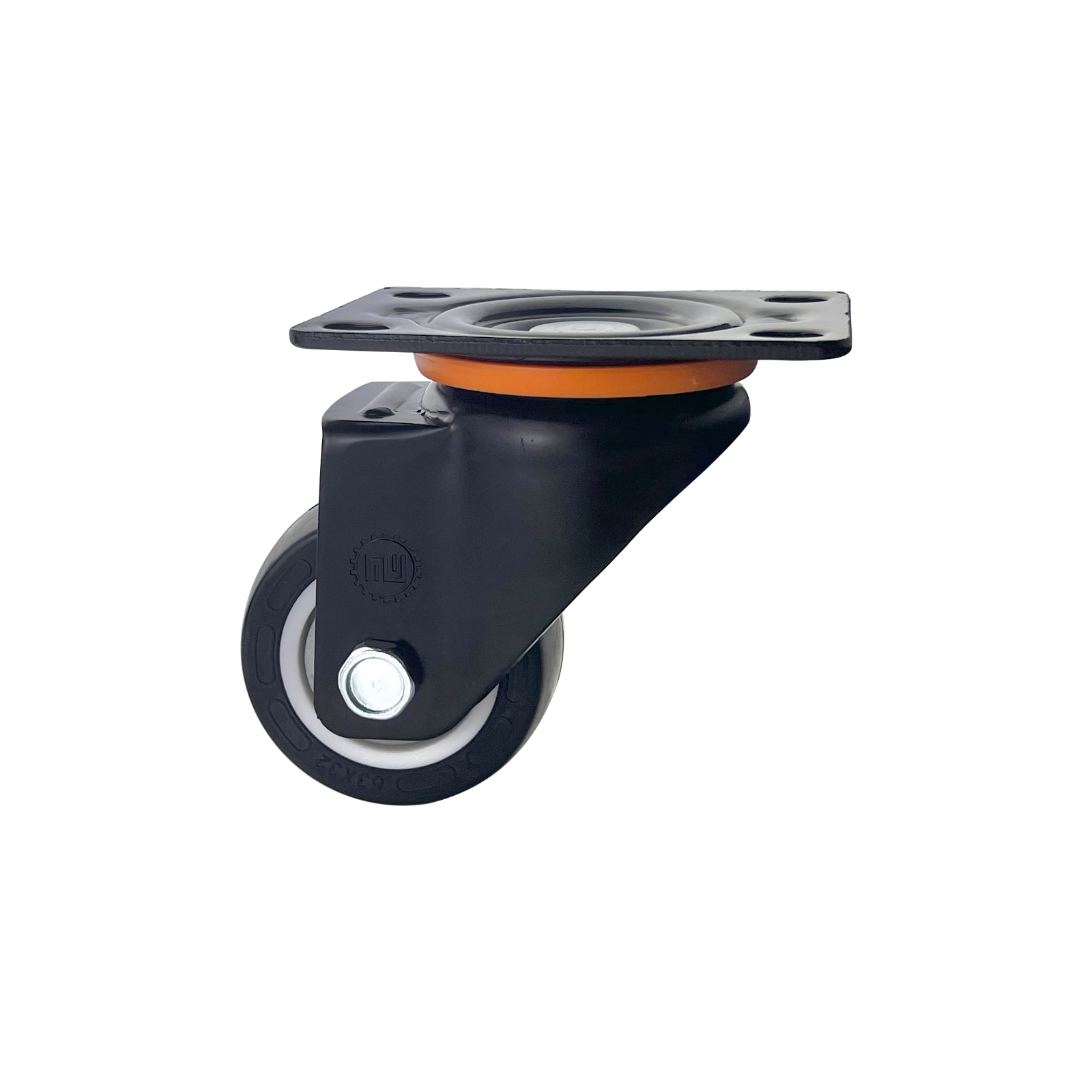Trolley wheels are essential components in the realm of material handling, facilitating the movement of goods across various industries. These wheels not only enhance efficiency but also ensure safety and ease of transport. In this article, we will explore the different types of trolley wheels, their materials, applications, advantages, and more.
Types of Trolley Wheels
Trolley wheels can be categorized based on several criteria:
Material: Common materials include rubber, polyurethane, and polyamide. Each material offers unique benefits; for instance, polyurethane wheels are known for their durability and resistance to wear, making them ideal for heavy-duty applications.
Carrying Capacity: Trolley wheels are designed to support different weight ranges. They can be classified into light-duty (up to 200 kg), medium-duty (up to 400 kg), heavy-duty (up to 1100 kg), and ultra-heavy-duty models that can support loads exceeding 7 tons.
Bearing Type: The performance of trolley wheels is influenced by their bearing types, which can be ball bearings, roller bearings, or plain bearings. Ball bearings are preferred for heavy loads due to their durability, while plain bearings are suitable for lighter applications.
Design Features: Some trolley wheels come with swivel capabilities that allow for greater maneuverability, while others are fixed to maintain directional stability. Additionally, certain models include brakes to enhance safety during loading and unloading.
Applications Across Industries
Trolley wheels find applications in a wide range of sectors:
Warehousing and Logistics: In warehouses, trolley wheels are crucial for transporting pallets and goods efficiently. Their robust design allows them to navigate various floor types while minimizing wear on surfaces.
Manufacturing: In manufacturing settings, trolley wheels facilitate the movement of components along assembly lines. Their smooth operation reduces noise and enhances productivity.
Healthcare: Hospitals utilize trolley wheels for transporting medical equipment and supplies. The non-marking and hygienic properties of certain wheel types help maintain cleanliness in sensitive environments.
Retail: Shopping carts equipped with advanced trolley wheels enhance customer experience by providing smooth navigation through aisles without damaging floors.
Advantages of Trolley Wheels
The benefits of using trolley wheels in material handling are manifold:
Enhanced Mobility: Trolley wheels allow for smooth movement across different surfaces, making it easier to transport heavy loads with minimal effort. This mobility is particularly beneficial in tight spaces such as warehouses or retail environments.
Durability: Constructed from high-quality materials, trolley wheels are designed to withstand substantial weight and frequent use. This durability translates into long-term cost savings as businesses face fewer replacements and repairs.
Floor Protection: Many trolley wheels feature non-marking surfaces that prevent damage to flooring materials. This is especially important in retail and healthcare settings where maintaining aesthetics is crucial.
Versatility: Trolley wheels can be tailored to meet specific needs across various industries. Customization options allow businesses to select the right size, material, and load capacity for their unique applications.
Factors to Consider When Choosing Trolley Wheels for Different Surfaces
When selecting trolley wheels for different surfaces, several key factors must be considered to ensure optimal performance, safety, and longevity. The right choice can significantly affect the efficiency of material handling operations, especially in environments where various floor types are present. Here are the essential factors to keep in mind:
- Load Capacity
- Floor Compatibility
- Wheel Material
- Noise Level
- Wheel Diameter
- Bearing Type
- Environmental Conditions
- Swivel vs Rigid Wheels
By considering these aspects thoughtfully, you can enhance your material handling efficiency while ensuring safety and durability in their operations.
Innovations in Trolley Wheel Technology
Recent advancements in trolley wheel technology have led to significant improvements in performance:
Polyurethane Wheel Treads: The introduction of polyurethane treads has revolutionized trolley wheel design. These treads enhance load-bearing capacity while providing excellent abrasion resistance. They are particularly effective in environments where chemical resistance is necessary, such as food processing or pharmaceuticals.
Smart Technology Integration: Emerging technologies like IoT sensors are being integrated into trolley wheel designs. These sensors can provide real-time data on load weight and wheel condition, allowing for proactive maintenance and improved operational efficiency.
Sustainable Materials: With growing environmental concerns, manufacturers are exploring eco-friendly materials for trolley wheel production.
In conclusion, trolley wheels for material handling play a pivotal role in enhancing efficiency across various sectors. Their diverse applications, coupled with continuous advancements in technology and materials science, ensure that they will remain indispensable tools. As industries evolve, so too will the designs and functionalities of these essential components, paving the way for even greater innovations in the future.
